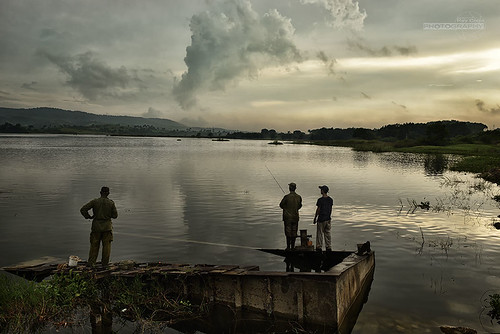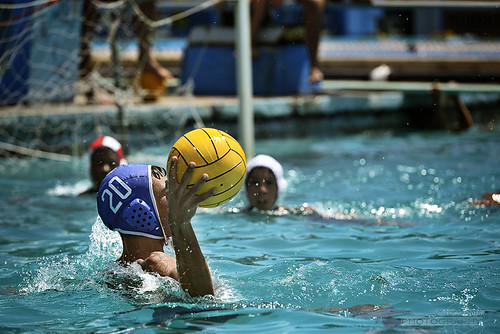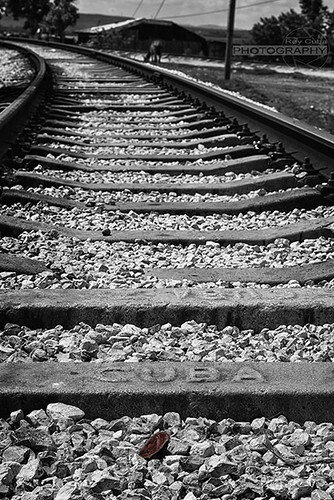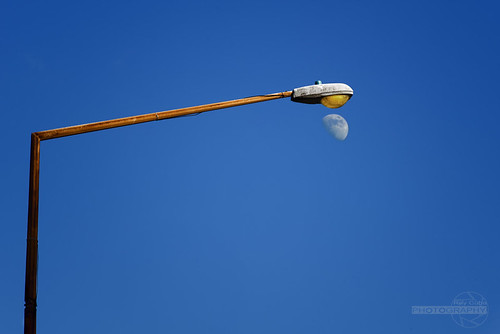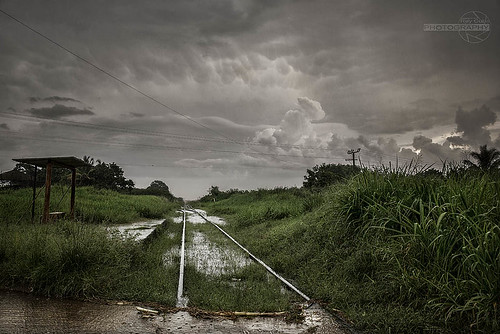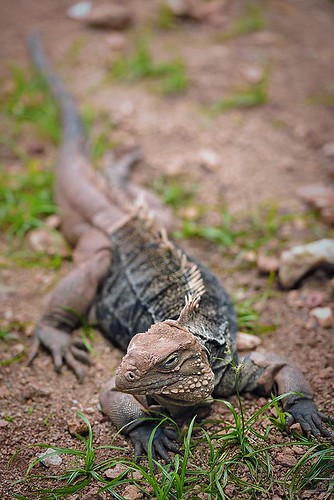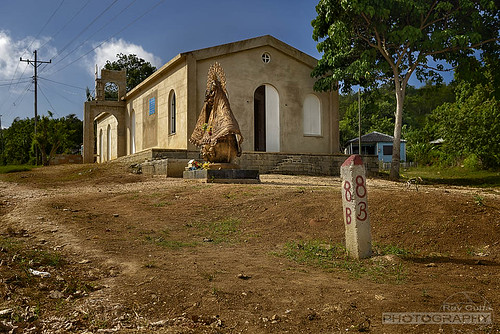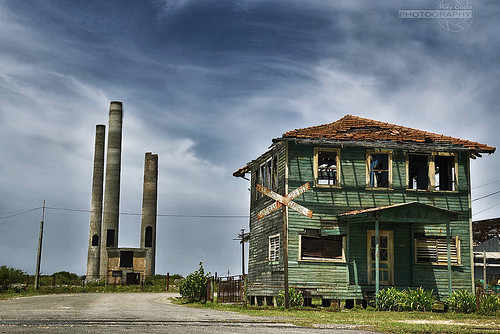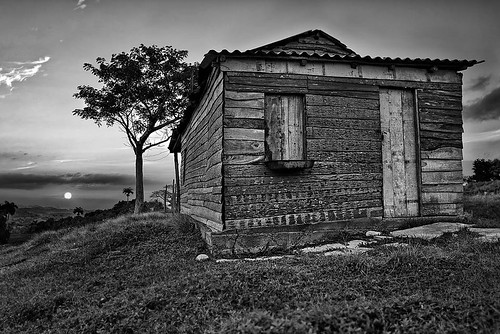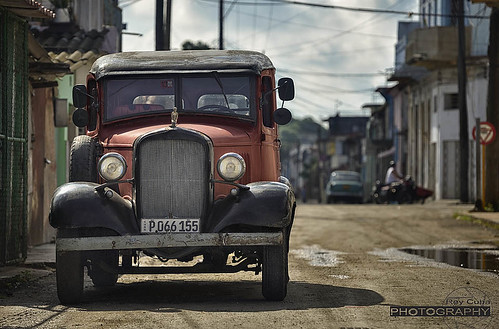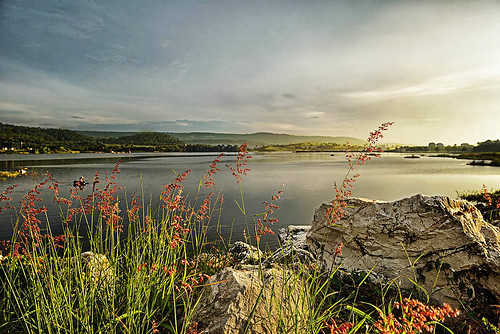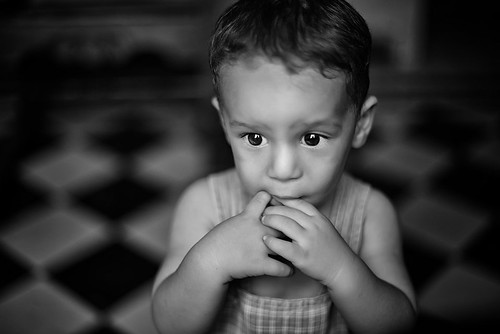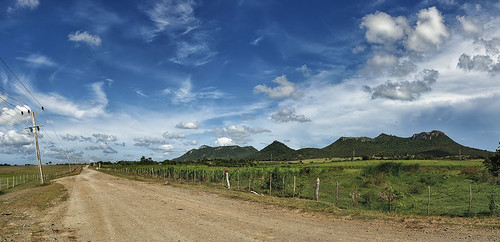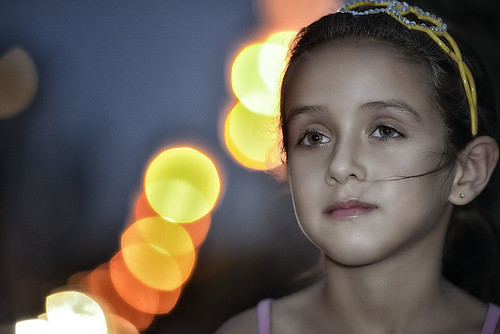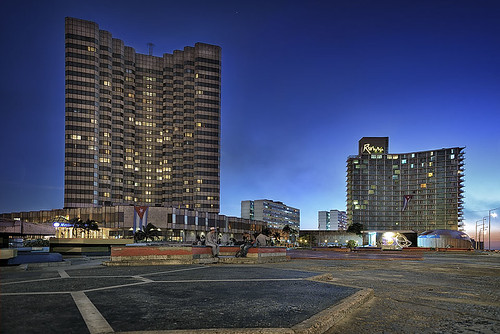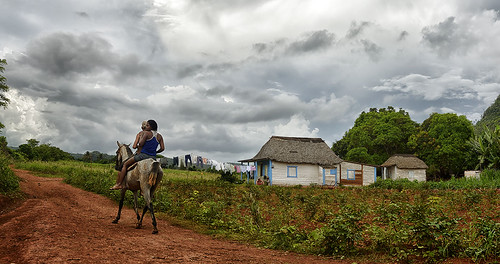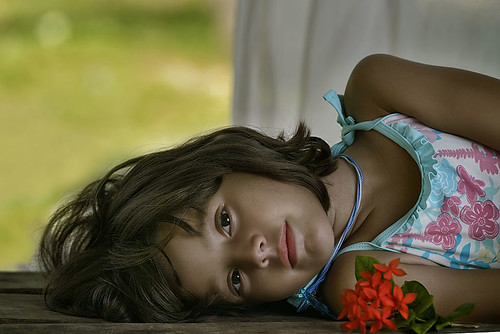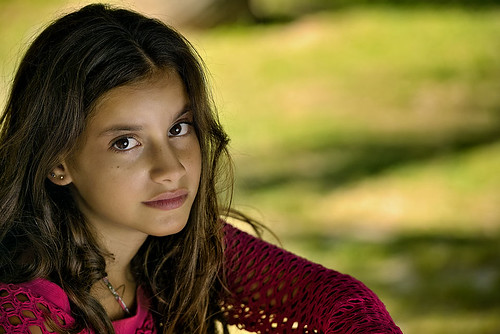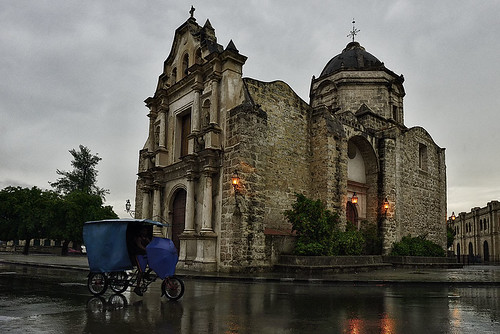Una tarde con amigos fotógrafos s y al final de la misma, llegamos a este remanso donde otros amigos compartían entre risas momentos para llevar la comida a casa, juntos compartimos ideas, platos, recetas, ellos expertos en la pesca, nosotros expertos en escucharlos.
An evening with friends photographers and end of it, we came to this haven where other friends shared a laugh moments to take the food home, together we share ideas, food, recipes, including experts in fisheries, we hear experts.
22 oct 2013
Fresh Food
21 oct 2013
17 oct 2013
16 oct 2013
15 oct 2013
Una tarde cualquiera de agosto
Llegamos una tarde cualquiera de Agosto, la familia y mi amigo se encontraron después de un largo tiempo. La tarde presagiaba con su capote gris un encuentro triste y emotivo.
Las lágrimas, las sonrisas, las historias se sucedieron una tras otra, este solía ser el lugar de juegos de mi amigo durante sus vacaciones, apenas irreconocible.
El batey se había convertido en un pueblo fantasma desde que el central dejó de existir para ellos, Unos decidieron mudarse, los que quedaron decidieron renovar los votos y las esperanzas, mas solo lluvia gris les había llegado hasta el momento.
Fue difícil para mi que nunca antes había visitado el lugar, mucho mas duro fue para mi amigo, quedando solo en las historias del como y cuando.
We arrived one afternoon August, family and my friend reunite after a long time. The afternoon foreshadowed his gray cloak sad and emotional encounter.
The tears, the smiles, the stories followed one after another, this used to be the playground of my friend while on holiday as a child, today was a place barely recognizable.
The batey had become a ghost town since the sugar mill ceased to exist for them, few decided to move, those who remained decided to renew the vows and hopes, but only gray rain had come so far.
It was difficult for me who had never visited the place, much harder it was for my friend, remaining only the stories of how and when
14 oct 2013
Learning from dad
A veces me reencuentro conmigo mismo y solo basta una imagen que me lo recuerde.
Caminé tantas veces por estos espacios abiertos, donde solo la brisa marina y mis pasos solían dar curso a mis pensamientos.
Ahora cuando miro me doy cuenta de cuanto me faltaba entonces y cuánto me falta ahora, logré tantas cosas que soñaba, sin embargo deje otras realizadas en el camino.
Observando a este padre, con su hijo en el muro de esta tan transitada vía, contemplando como la vida transcurre tranquila y sin prisas en medio de una tarde de Octubre, me siento con ganas nuevamente de tomar por asalto el mundo y mirar como este niño con ojos grandes las pasiones del futuro.
Sometimes I come back to myself and a picture it is enough to remind it.
I walked so many times by these open spaces, where only the sea breeze and my steps used to follow up my thoughts.
Now when I look I realize how much I was missing then and how much I need now, I got so many things I dreamed, however let others made along the way.
Watching this father with his son on the wall of this very busy road, watching as life goes quiet and unhurried in the middle of an October afternoon, I feel like again to take by assault the world and look like this child passions with big eyes the future
11 oct 2013
9 oct 2013
Caridad del Cobre
Primer asentamiento de la imagen de la Virgen de la Caridad.
La historia se remonta a 1510, cuando el conquistador Alonso de Ojeda arribó a las costas cubanas luego del naufragio del barco pirata, comandado por Bernardino de Talavera, en el que se encontraba como prisionero. De Ojeda, Talavera y la tripulación debieron unir sus fuerzas para comenzar a recorrer la isla a pie buscando volver a La Española —las actuales República Dominicana y Haití—, lugar del primer asentamiento europeo, descubierto por Cristóbal Colón, en 1492.
El camino les deparó hambre y enfermedades, y la mitad de los hombres que acompañaban a de Ojeda murieron. De Ojeda cargaba apenas una imagen de la Virgen María que llevaba consigo desde la primera vez que se embarcó a América, en 1493, e hizo la promesa de que le dedicaría un templo en el primer poblado indígena que encontrara en su camino y que los recibiera con buenas intenciones.
Poco después, con una docena de hombres y el pirata Talavera, llegaron a la comarca de Cueybá, donde el cacique Cacicaná trató amablemente y cuidó a de Ojeda y a los demás hombres, que a los pocos días se habían recuperado.
En agradecimiento, Alonso Ojeda construyó una pequeña ermita con ramas de árboles, posiblemente la primera en suelo cubano. Allí colocó la imagen y cumplió así el voto que había hecho. Enseñó a los nativos a decir el Ave María y aquella expresión se propagó tan rápido que más tarde Cuba se llegó a conocer como la isla del "Ave María".
Sin comprender muy bien la religión, los nativos veneraron la imagen y mantuvieron la ermita con gran esmero cuando Ojeda se marchó.
Más tarde, en 1598, comenzó la explotación del cobre en las montañas de la región oriental de la isla. A 15 leguas de las minas el gobierno español estableció el hato de Varajagua o Barajagua, que contaba con mucho ganado. Por eso era necesaria la sal que prevenía la corrupción de la carne. Así fue como —alrededor de 1612 o inicios de 1613—, dos hermanos y un pequeño esclavo encontraron la estatua de la Virgen flotando en el mar. Se llamaban respectivamente Juan de Hoyos, Rodrigo de Hoyos y Juan Moreno, conocidos por la tradición como "los tres Juanes”.
Desde la aparición de la estatua, la devoción a la Virgen de la Caridad se propagó con asombrosa rapidez por toda la isla y con los años se adquirió un recinto mayor para construir un nuevo santuario que pudiese acoger al creciente número de peregrinos.
La Caridad del Cobre es conocida también como la “Virgen mambisa” por la veneración que le prodigaron los cubanos que participaron en las guerras de independencia de España, a finales siglo XIX, quienes la consideraron un símbolo de patriotismo y de identidad.
La Virgen de La Caridad tiene su santuario nacional en El Cobre, pequeño pueblo cercano a Santiago, a unos 900 kilómetros al este de La Habana.
Tomado de www.miperiodico.com.ar/noticias/virgendelacaridadelcobre....
First settlement of the image of the Virgin of Charity.
The story goes back to 1510, when the conquistador Alonso de Ojeda arrived in the Cuban coast after the shipwreck of the pirate ship, commanded by Bernardino de Talavera , in which he was a prisoner . De Ojeda , Talavera and crew must join forces to start walking around the island looking back to the current Spanish - Dominican Republic and Haiti , site of the first European settlement , discovered by Christopher Columbus in 1492 .
The way they threw up hunger and disease, and half of the men who accompanied Ojeda died. De Ojeda carrying just a picture of the Virgin Mary that led him from the first time I sailed to America in 1493 , and made a promise that I would devote a temple in the first Indian village to find on their way and that the received with good intentions.
Soon after, with a dozen men and the Pirate Talavera, came to the region of Cueybá , where the chief Cacicaná treated kindly and cared for de Ojeda and the other men, who within days had recovered .
In gratitude, Alonso Ojeda built a small shrine with tree branches , possibly the first on Cuban soil . They placed the image and thus fulfilled the vow he had made . He taught the natives to say the Hail Mary and that expression spread so quickly that Cuba later became known as the island 's " Ave Maria " .
Without a good understanding of the religion, the natives venerated the shrine image and maintained with great care when Ojeda went .
Later, in 1598 , copper mining began in the mountains of the eastern region of the island. A 15 leagues mines Spanish government established or Barajagua Varajagua herd , which had much cattle . Therefore it was necessary salt prevented the corruption of the flesh . That was how - about 1612 or early 1613 - two brothers and a small slave found the statue of the Virgin floating in the sea. Respectively were called Juan de Hoyos, Rodrigo de Hoyos and Juan Moreno , known by tradition as the "three Juans " .
Since the appearance of the statue , devotion to the Virgin of Charity spread with amazing speed across the island and over the years it acquired a larger enclosure to build a new sanctuary that could accommodate the growing number of pilgrims.
La Caridad del Cobre is also known as the "Virgin mambisa " by the veneration lavished Cubans who participated in the wars of independence from Spain , in the late nineteenth century , who considered a symbol of patriotism and identity .
The Virgin of Charity has its national shrine in El Cobre , a small town near Santiago , about 900 kilometers east of Havana .
Taken from www.miperiodico.com.ar/noticias/virgendelacaridadelcobre....
8 oct 2013
Preston's Memories
Espero encontrar la historia de este poblado en algún momento, ahora se llama Guatemala y esta localizado en el Oriente cubano, en la provincia de Holguín.
I hope to find the history of this town at some point, now called Guatemala and is located in the Eastern Cuba, in the province of Holguin.
7 oct 2013
4 oct 2013
Herencias
Ayer un amigo me pedía que pusiese pie de firma nuevamente a mis fotos, pues ha visto algunas por la red. Me imagino que es el riesgo de compartirlas y recibir las críticas o sugerencias de otros como yo que sueñan detrás del lente.
Laura anoche se tomó la tarea bien en serio y me ayudó confeccionando este logo para mi.
Yesterday a friend asked me to put an signature once again to my photos, He have seen some of them spread on the network. I guess that's the risk to share and receive criticism or suggestions of others like me who dream behind the lens.
Laura last night took the task very seriously and helped me putting together this logo for me.
3 oct 2013
2 oct 2013
1 oct 2013
Camino a Bariay
Camino al lugar donde se encontraron dos culturas hace ya varios siglos.
The road who leads to the place where to different cultures met.
30 sept 2013
Ana Paula
Me quedaba la foto de Ana Paula por agregar, asi que ya pueden sentirse las tres enanas felices.
Utilicé un flash METZ 48AF1 desnudo y un gel 1/2 CTO, disparados por RF603.
I the end Ana Paula work for me as a model, so my three little ones most be happy.
Flash Metz 48Af1 naked at the camera right side, trigger by RF603 and 1/2 CTO gel.
27 sept 2013
26 sept 2013
24 sept 2013
Claudia, my other model
Para que no se pongan celosas las publico poco a poco.
To avoid the girls getting jealous, I rather publish them one by one.
3 flashes installed in a Wescott parabolic umbrella at the right of the camera, trigger by Yongnuo RF603.
23 sept 2013
Las modelos de papá
Dad´s models.
3 flashes installed in a Wescott parabolic umbrella at the right of the camera, trigger by Yongnuo RF603.
20 sept 2013
The perfect storm
Hay días donde el cielo toma la tierra por asalto y pareciera que el gris no tuviera fin.
There are days where the sky takes earth for assault and gray seem to have no end.

